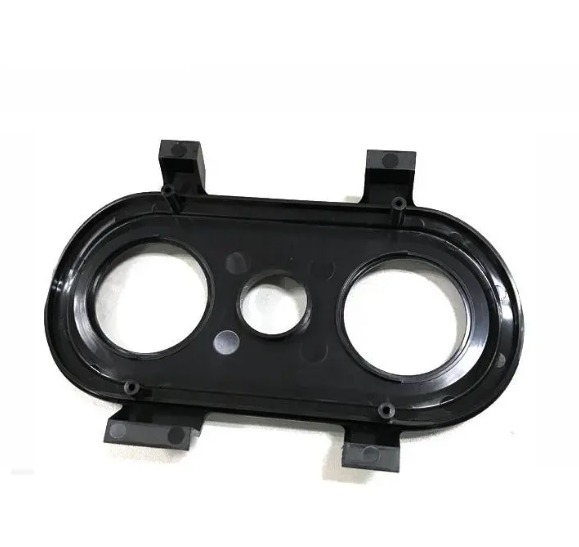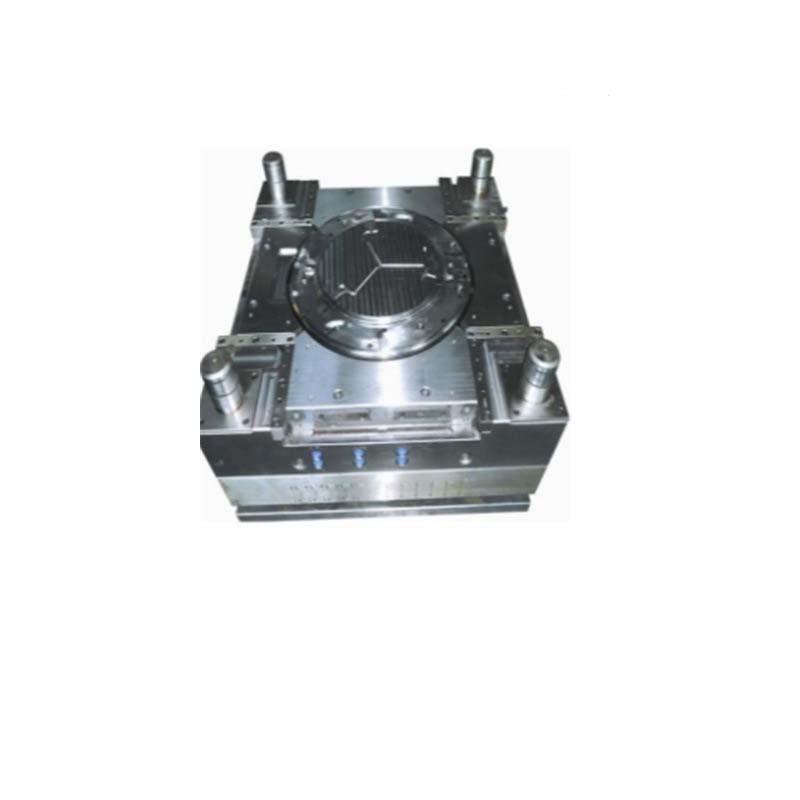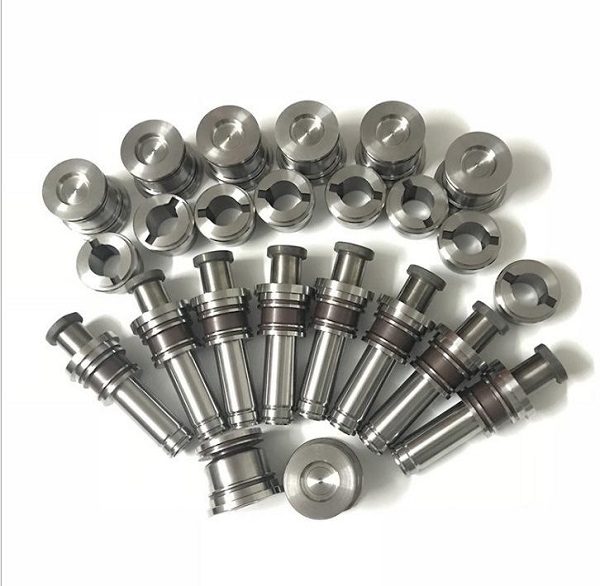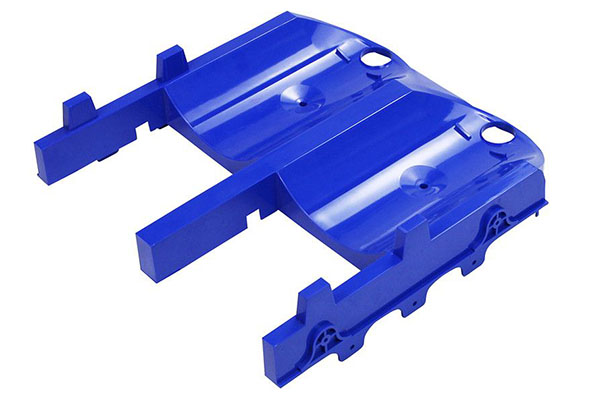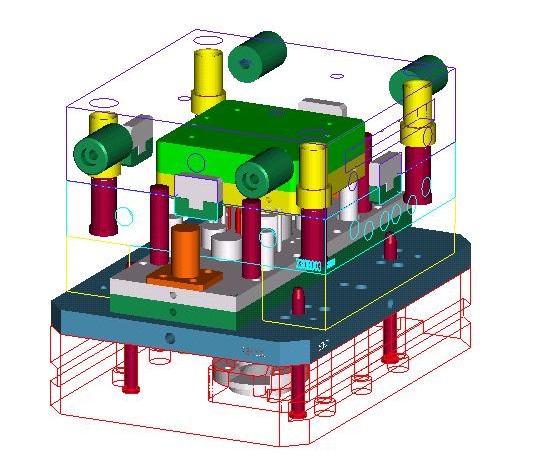Introduction
Understanding Custom Plastic Tooling in Extrusion
In the world of extrusion businesses, custom plastic tooling is the cornerstone of success. It serves as the bridge between a company's innovative ideas and the high - quality plastic products that meet the diverse needs of the market.
What is Custom Plastic Tooling?
Custom plastic tooling refers to the specialized molds, dies, and other manufacturing tools designed and fabricated to produce plastic components with specific shapes, sizes, and functions. These tools are not off - the - shelf items; instead, they are tailor - made according to the unique requirements of each extrusion project. For example, a company that manufactures plastic pipes for plumbing systems may require custom tooling to achieve the exact diameter, wall thickness, and threading specifications needed for seamless installation.
The Significance for Extrusion Businesses
- Product Differentiation: In a highly competitive market, custom plastic tooling allows extrusion businesses to create unique products. By having tools designed specifically for their products, companies can offer features that competitors cannot match. For instance, a manufacturer of plastic automotive parts can use custom tooling to create parts with complex geometries that improve aerodynamics and fuel efficiency, setting their products apart in the automotive supply chain.
- Cost - Efficiency in the Long Run: While the initial investment in custom plastic tooling can be significant, it often leads to long - term cost savings. Standard tooling may not be optimized for a company's production volume or product design. Custom tooling, on the other hand, can be engineered to minimize material waste, reduce production cycle times, and improve overall production efficiency. A study by [Industry Research Firm Name] found that companies that switched to custom tooling for high - volume production saw a 15 - 20% reduction in per - unit production costs over a two - year period.
- Quality Assurance: Custom tooling is designed with the specific product requirements in mind, which results in higher - quality products. The precise control over the manufacturing process enabled by custom tooling ensures that each plastic component meets the strictest quality standards. For example, in the medical device industry, where the slightest defect can have serious consequences, custom plastic tooling is crucial for producing components such as syringe barrels and catheter tubes with consistent wall thickness and dimensional accuracy.
In the following sections, we will delve deeper into the various aspects of custom plastic tooling, including the design process, material selection, and maintenance, to help extrusion businesses make informed decisions and maximize the benefits of this essential manufacturing element.
The Basics of Custom Plastic Tooling
Materials Used in Custom Plastic Tooling
The choice of materials in custom plastic tooling is crucial as it directly impacts the performance, durability, and cost - effectiveness of the final plastic products. Here are some commonly used materials:
- Rigid PVC (Polyvinyl Chloride): Rigid PVC is known for its excellent chemical resistance, high strength, and dimensional stability. It can withstand exposure to a wide range of chemicals, making it suitable for applications in the chemical, plumbing, and construction industries. For example, in plumbing, rigid PVC pipes are widely used for water supply and drainage systems due to their corrosion - resistance and ability to maintain their shape over time. However, it has a relatively low heat resistance, which limits its use in high - temperature environments.
- Polyethylene (PE): Polyethylene comes in different forms such as High - Density Polyethylene (HDPE) and Low - Density Polyethylene (LDPE). HDPE offers high strength, stiffness, and excellent impact resistance. It is commonly used in applications like large - scale storage tanks, industrial pipes, and heavy - duty packaging. LDPE, on the other hand, is more flexible and has better transparency. It is often used for making plastic bags, food packaging films, and some types of flexible tubing.
- Polypropylene (PP): PP has good chemical resistance, high heat resistance (it can withstand temperatures up to around 130 - 150°C), and is lightweight. It is widely used in the automotive industry for interior components, in the food packaging industry for containers that need to be heat - resistant (such as microwave - safe food containers), and in the production of disposable medical products due to its sterilizability.
- Acrylonitrile Butadiene Styrene (ABS): ABS is a tough and rigid plastic with good impact resistance, dimensional stability, and surface finish. It is commonly used in the electronics industry for manufacturing product housings, such as computer monitors and keyboards, as well as in the toy industry for making durable toys.
Types of Custom Plastic Tooling
There are several types of custom plastic tooling, each designed to meet specific manufacturing requirements:
- Injection Molds: These are the most common type of custom plastic tooling. Injection molds are used to create plastic parts by injecting molten plastic into a mold cavity under high pressure. They are highly versatile and can produce complex - shaped parts with high precision. Injection molds are suitable for high - volume production, making them ideal for industries like automotive, consumer electronics, and medical device manufacturing. For example, the plastic parts of a car's interior, such as dashboard components, are often made using injection molds.
- Blow Molds: Blow molds are used to produce hollow plastic products, such as bottles, containers, and toys. The process involves heating a plastic parison (a tube - like piece of plastic) and then blowing air into it inside a mold cavity to expand the plastic and form the desired shape. Blow molds are commonly used in the packaging industry for producing beverage bottles, shampoo bottles, and food containers.
- Extrusion Dies: Extrusion dies are used in the extrusion process, where plastic is forced through a die opening to create continuous profiles such as pipes, rods, sheets, and profiles. These dies are customized according to the cross - sectional shape required for the final product. For instance, in the construction industry, extrusion dies are used to produce PVC window profiles and polyethylene pipes.
- Custom Color - Matched Molds: In some cases, businesses require plastic products with specific colors. Custom color - matched molds are designed to incorporate colorants into the plastic during the manufacturing process, ensuring consistent and accurate color reproduction. This is important for products where brand - specific colors are crucial, such as consumer products with distinct color identities.
- Multi - Shot Molds: Multi - shot molds are used to create plastic parts with multiple materials or colors. This type of tooling allows for the sequential injection of different plastics or colors into the same mold cavity, resulting in a single, integrated part. It is often used in the production of complex consumer goods, such as mobile phone cases with soft - touch grips combined with a hard outer shell.
The Process of Custom Plastic Tooling
Design Phase
The design phase of custom plastic tooling is a collaborative process that begins with in - depth communication between the tooling manufacturer and the extrusion business.
- Initial Consultation: The first step is to have a detailed discussion with the client. This involves asking open - ended questions to understand the product's intended use, performance requirements, and any specific design constraints. For example, if the plastic product is for a medical device, questions will revolve around biocompatibility requirements, sterilization methods, and the need for tight tolerances. The tooling manufacturer will also inquire about the production volume expectations. High - volume production may require a more durable and efficient tooling design, while low - volume production might allow for more cost - effective, yet still functional, tooling solutions.
- Concept Development: Based on the information gathered, the design team creates initial concepts. These can be in the form of sketches, 2D drawings, or 3D models. The 3D models are particularly useful as they provide a more tangible representation of the final product. For instance, a 3D model of a custom - designed plastic housing for an electronic device can show the exact shape, location of ports, and overall aesthetics. The design team also considers manufacturability at this stage, ensuring that the design can be translated into a physical tool without major complications.
- Design Review and Approval: The client is then presented with the design concepts. This is an opportunity for the client to provide feedback, suggest modifications, or request additional features. The tooling manufacturer may use virtual reality (VR) or augmented reality (AR) technologies to give the client an immersive experience of the product design, especially for complex or large - scale projects. Once the client is satisfied with the design, it is approved, and the project moves on to the manufacturing phase.
Manufacturing Phase
The manufacturing phase of custom plastic tooling is a complex process that requires precision and strict quality control.
- Material Selection and Procurement: Based on the design requirements, the appropriate materials for the tooling are selected. This could be high - grade steel for injection molds that need to withstand high pressure and temperature during the plastic injection process, or aluminum for extrusion dies where lightweight and good thermal conductivity are desired. The materials are then procured from reliable suppliers, and quality checks are performed on the incoming raw materials to ensure they meet the required specifications.
- Machining and Fabrication: The selected materials are then machined using various techniques such as computer - numerical - control (CNC) milling, turning, and electrical discharge machining (EDM). CNC milling is used to create complex shapes and precise features on the tooling components. For example, in the production of a custom injection mold, CNC milling can be used to create the intricate cavity where the plastic will be formed. EDM is often used for creating fine details or for materials that are difficult to machine conventionally.
- Assembly and Finishing: After the individual components are machined, they are assembled. The assembly process requires careful alignment and fastening to ensure the proper functioning of the tooling. Once assembled, the tooling undergoes finishing operations such as polishing, plating, or heat treatment. Polishing can improve the surface finish of the mold, which in turn affects the surface quality of the plastic product. Heat treatment can enhance the hardness and durability of the tooling.
- Quality Control: Quality control is an integral part of the manufacturing process. Multiple inspections are carried out at different stages. First, there are in - process inspections during machining to check for dimensional accuracy. After assembly, a comprehensive inspection is done to ensure that all components are properly installed and that the tooling functions as designed. Finally, a sample production run is often conducted using the newly - made tooling. The plastic products produced in this sample run are thoroughly inspected for any defects such as warping, flash, or incorrect dimensions. If any issues are detected, the tooling is adjusted or reworked until the quality standards are met.
Yigu Technology's Viewpoint
As a non - standard plastic metal products custom supplier, Yigu Technology understands the significance of custom plastic tooling deeply. With years of experience in the field, we know that every extrusion business has unique requirements. Our expertise lies in our ability to translate these diverse needs into high - quality custom plastic tooling solutions.
We pride ourselves on using advanced manufacturing techniques and high - quality materials. This ensures that the tooling we provide not only meets but often exceeds the expectations of our clients in terms of durability and performance. Our team of skilled engineers and technicians works closely with clients throughout the design and manufacturing process, from the initial concept to the final product. This collaborative approach allows us to address any concerns promptly and make necessary adjustments, guaranteeing that the end - product is of the highest quality. Whether it's a small - scale project or a large - volume production, Yigu Technology is committed to delivering custom plastic tooling that helps extrusion businesses thrive in a competitive market.
FAQ
What are the most suitable materials for custom plastic tooling in extrusion?
Some of the most suitable materials include Rigid PVC, which offers excellent chemical resistance and dimensional stability, making it great for plumbing and chemical - related products. Polyethylene (PE), with HDPE being strong and stiff for heavy - duty applications like industrial pipes, and LDPE being flexible and transparent for packaging. Polypropylene (PP) is suitable due to its high heat resistance and lightweight nature, used in automotive and food packaging. Acrylonitrile Butadiene Styrene (ABS) is another good choice for its toughness, impact resistance, and is commonly found in electronics and toy products.
How long does the custom plastic tooling process usually take?
For simple custom plastic tooling, the process might take as little as a couple of weeks. This includes the design phase, which could be completed in a few days, and the manufacturing phase, which may take about one to two weeks. However, for complex tooling with intricate designs and high - precision requirements, it can take several months. For instance, if the tooling involves multiple components, complex geometries, and tight tolerances, the design phase may take a few weeks to finalize, and the manufacturing phase, with its numerous machining, assembly, and quality - control steps, could take two to three months or even longer.
Can custom plastic tooling help improve the competitiveness of my extrusion business?
Yes, it can. Custom plastic tooling allows you to create unique products that stand out in the market, giving you a competitive edge in terms of product differentiation. It can also lead to long - term cost savings by reducing material waste and improving production efficiency, which in turn allows you to offer more competitive pricing. Additionally, the higher - quality products produced with custom tooling can enhance your brand reputation, attracting more customers and further strengthening your position in the extrusion business.
